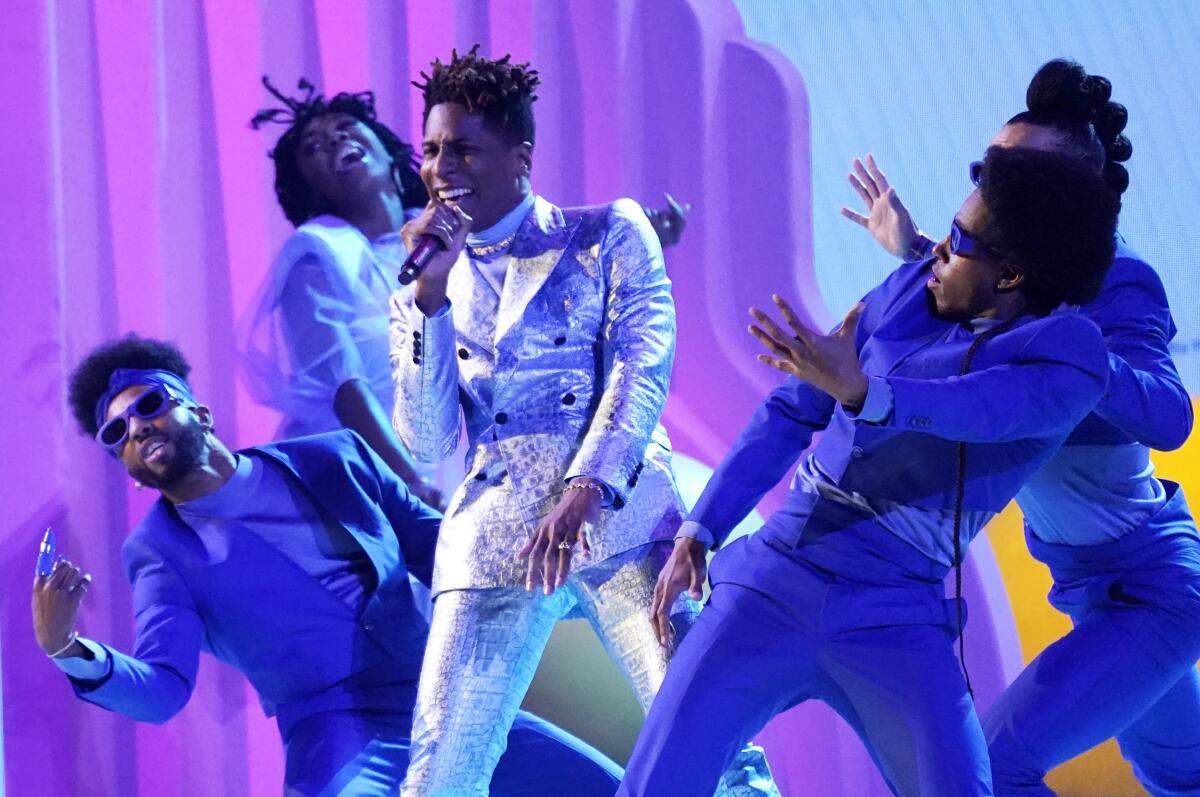Jon Batiste wins album of the year at 2022 Grammys

- Share via
Pianist, singer, songwriter and “Late Show With Stephen Colbert” bandleader Jon Batiste won album of the year at the 2022 Grammys on Sunday night for “We Are,” his politically focused jazz album, upsetting nine other long players by artists including Olivia Rodrigo, Taylor Swift and the duo of Tony Bennett and Lady Gaga.
With the victory, the 35-year-old New Orleans native notched his fifth win out of his 11 nominations this year, eight of which were for work from “We Are.” Batiste also won for score soundtrack for visual media (for Pixar’s “Soul”), American roots performance, American roots song and music video.
Released through Universal Music Group’s Verve imprint, “We Are” is the first jazz-focused album to win album of the year since 2008, when Herbie Hancock’s “River: The Joni Letters” upset albums by Foo Fighters, Amy Winehouse, Kanye West and Vince Gill.
Best known for his skills on the keyboard, Batiste sings on 12 of “We Are’s” 13 songs, sharing vocal duties with novelist Zadie Smith on one and Maroon 5 member PJ Morton on another. Across the record, Batiste also raps, stomps like a preacher and wails like a barrelhouse bluesman.
Batiste learned that versatility as part of a musical family that includes his father, Michael, a bassist who toured and co-founded the Batiste Band; the late composer-arranger Harold Battiste; and Funky Meters drummer Russell Batiste Jr. After starting as a drummer, Jon took up piano and was soon leading his own band. “Major labels began offering me record deals when I was 18 and 19, and I turned all of it down. I wanted to do my own independent, circuitous route,” he told The Times last year.
Batiste’s recordings, soundtrack work and late-night TV gig have made him the face of jazz-accented inclusivity for new generations. “‘Soul’ is a love letter to jazz,” Batiste told The Times. “How do we present the spirit and ethos of jazz without whitewashing it?” Adding that he had worked on “Soul” for more than two years, Batiste described his efforts as “obsessed with being as authentic as possible.”
His wins on Sunday confirm that Grammy voters embraced that authenticity.
More to Read
The biggest entertainment stories
Get our big stories about Hollywood, film, television, music, arts, culture and more right in your inbox as soon as they publish.
You may occasionally receive promotional content from the Los Angeles Times.











